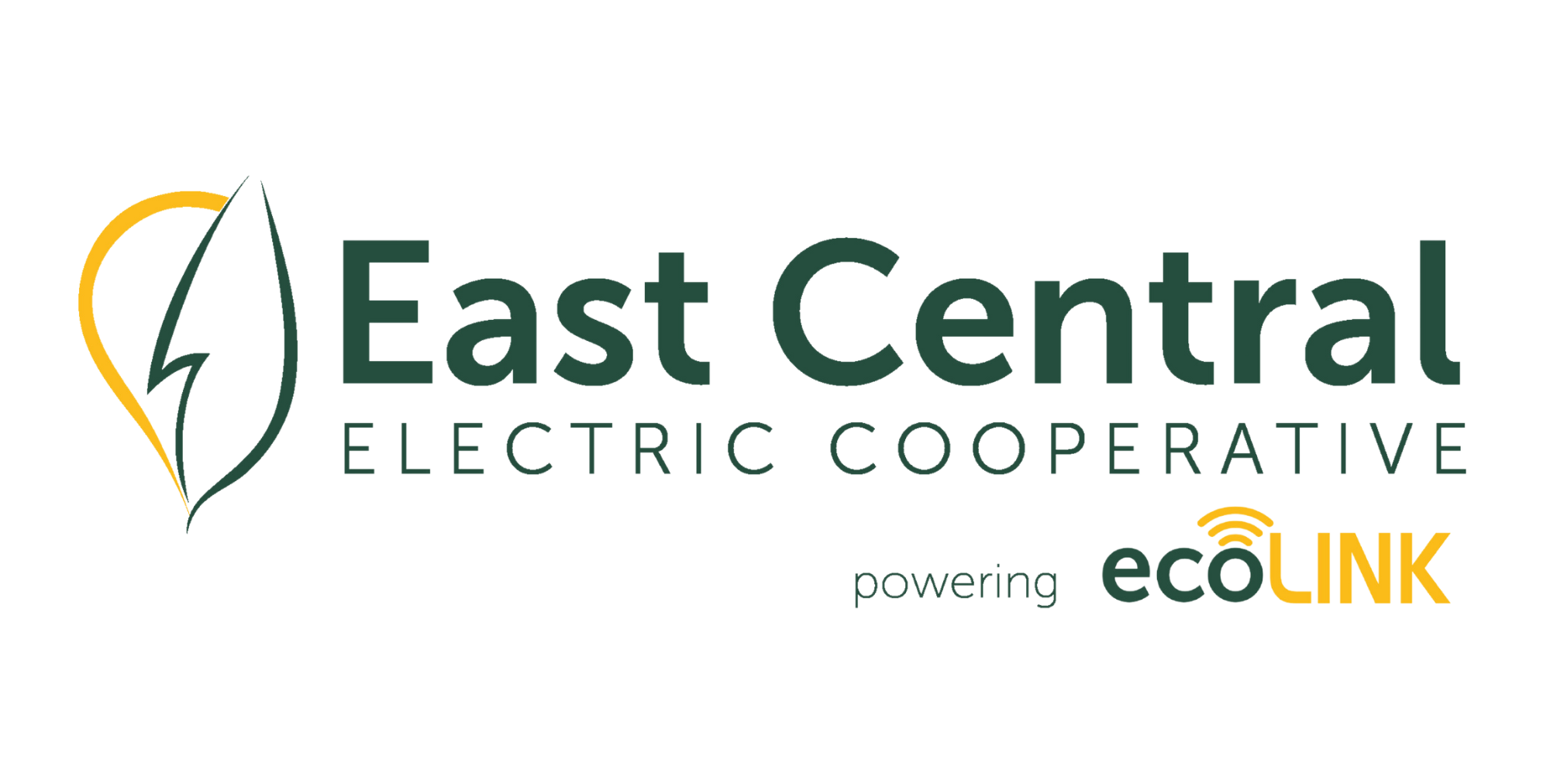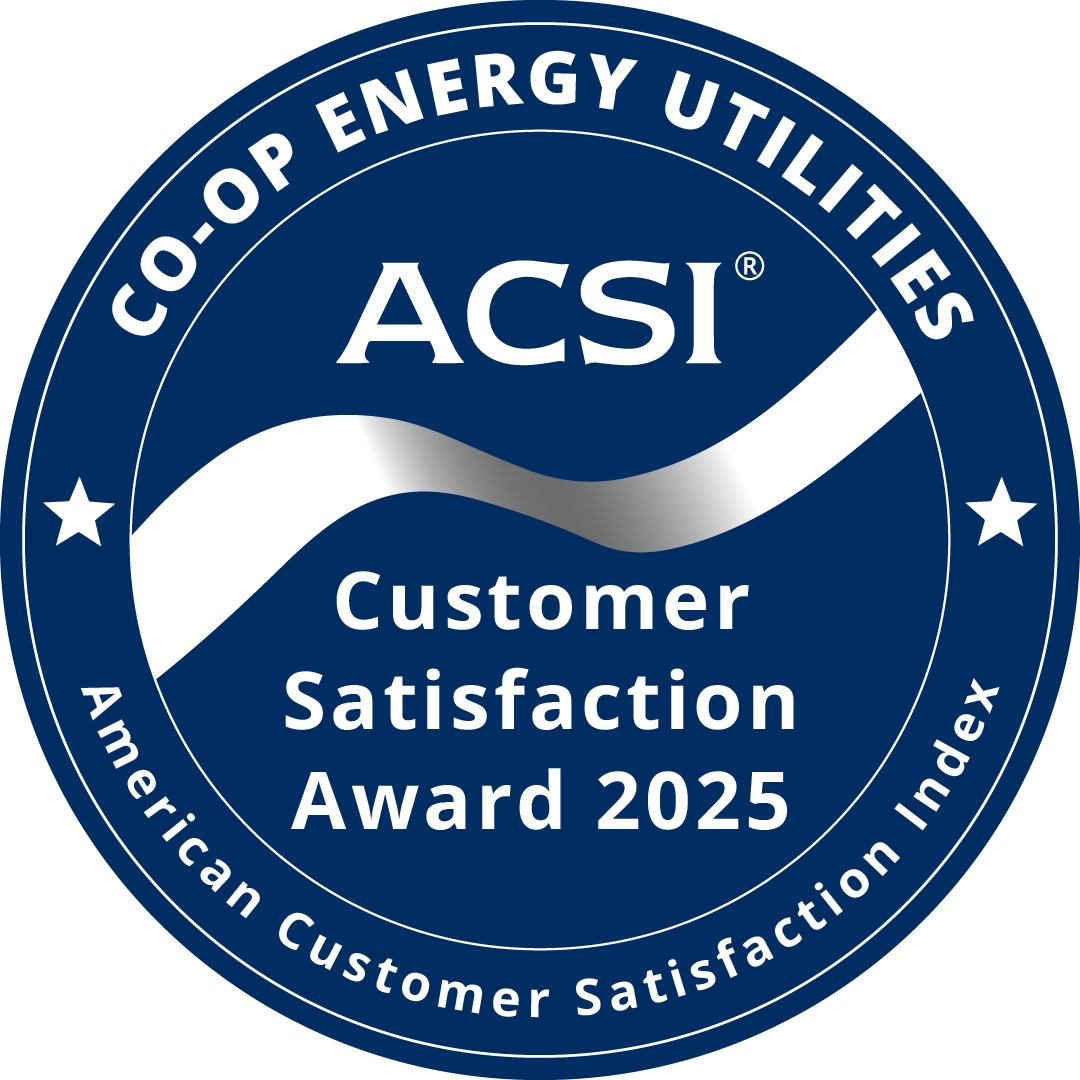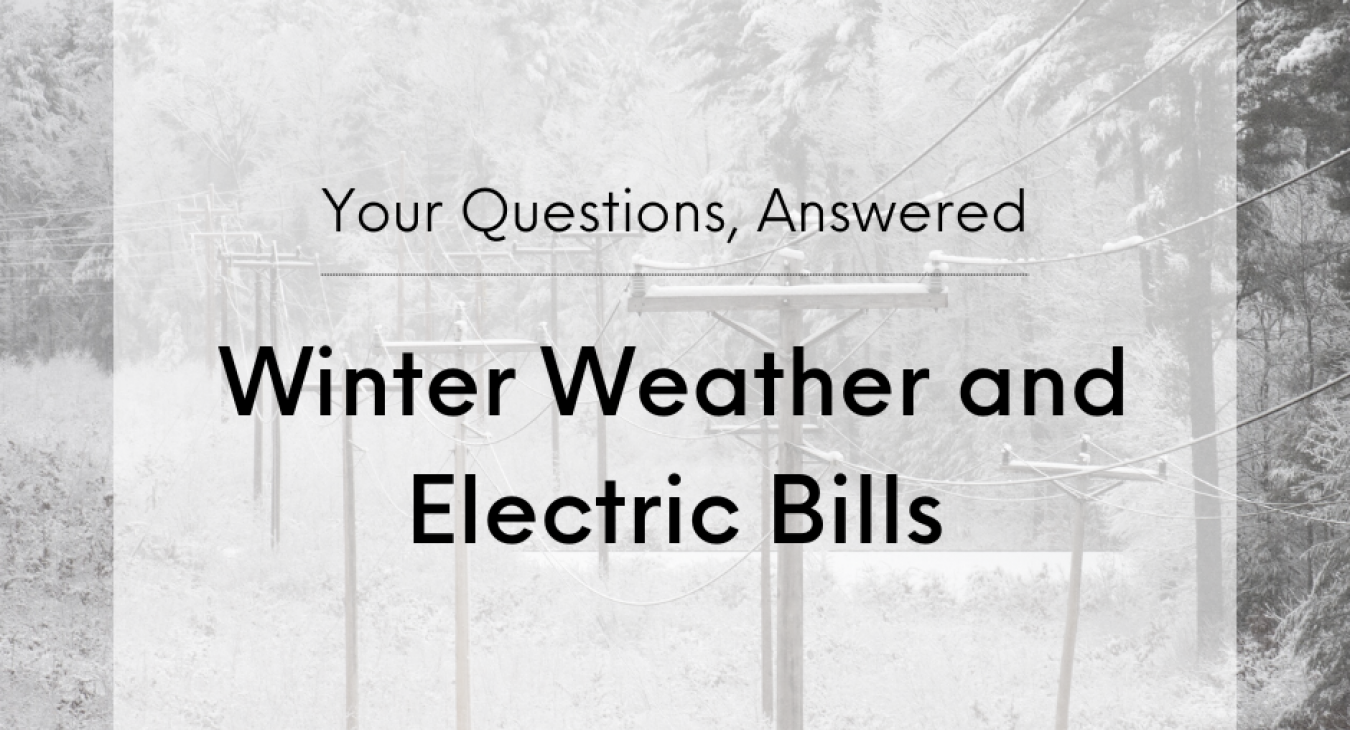Why do some electric bills go up in the winter? What is a power cost adjustment and why is it so much? What can I do to lower my electric bill? And how can I get help making ends meet this winter?
These are perfectly normal questions to ask. Our member service team hears these every year.
Luckily, you are a member of an electric cooperative. You are a co-owner of the institution that delivers your power. So when you have questions, you are entitled to real, honest answers.
Here are some of our members’ most common winter electric bill questions, answered.
1. Why do some electric bills go up in the winter?
The number one answer is genuinely the weather. Heating our homes, outbuildings, and our water makes up a combined 42 percent of our annual electric bill. Even the most energy efficient systems have to work hard to keep us comfortable and use a lot of energy in the process. Many gas and propane heating systems also use electricity to distribute heat around the home.
2. What is the power cost adjustment and why is it so much?
There are four main charges on every electric bill, which you can monitor to see if your usage goes up. If you don’t receive a paper bill, you can access a digital copy via SmartHub to see this for yourself, even if you’re on prepay.
The energy charge is the total amount of kilowatt-hours used in your home multiplied by the electric rate you are on, plus a $25 customer charge. The energy charge makes up the largest portion of your electric bill each month.
The power cost adjustment (PCA) is a pass-through cost based on the wholesale cost of fuel. The PCA is set monthly by our wholesale power suppliers and changes based on the cost of fuel used to generate electricity.
Wholesale power suppliers generate electricity from many sources including hydroelectric dams, solar and wind farms, coal-powered steam generators, and steam generators powered by oil and natural gas. When the cost to generate power goes up, as it typically does in the winter months when demand outweighs supply, so does the PCA.
The third charge you may notice on your bill is the gross revenue surcharge. This charge is required in place of state taxes and is allocated by the state government to local schools.
You may also see any local government taxes, such as a city franchise tax, that East Central is required to collect on your electric bill and distribute to your local government.
More information about the details of your electric bill and East Central’s rates and pricing structure can be found on our website under, “My Account.”
3. What can I do to lower my electric bill?
The most impactful way to lower your electric bill during the winter is to manage your thermostat settings. For every one degree increase in the heating set-point of your home, there is a 3 to 5 percent increase in energy use.
But there are other easy and affordable changes you can make that will have a significant impact on your electric bill.
Regularly changing your HVAC air filter; finding and sealing air leaks in walls, floors, and ceilings; and having your duct work checked for leaks; can all be done on a budget to keep your home toasty.
Setting your water heater thermostat no higher than 120°F keeps your water hot without making your machine work too hard.
And it’s worth noting that small electric space heaters may seem like an affordable alternative when heating your home, but they can cost more than $100 per month to operate. Limiting their use except for temporary spot heating when you are awake and in the room can save you money and prevent potential fire hazards.
4. How can I get help making ends meet this winter?
The Cooperative spirit is about members helping members when times get hard. If you find yourself struggling to pay your electric bill by the due date, give East Central Electric Cooperative a call for judgment-free support. Our helpful service representatives will discuss various payment arrangements and assistance programs that are available to you.
East Central Electric Cooperative operates on four billing cycles throughout the month. If you are on a billing cycle that is routinely due right before your paycheck comes in, we can quickly and easily change your due date at no cost to you to one of four available due dates. This can only be done once per year.
East Central Electric Cooperative follows the guidelines set by the Oklahoma Corporation Commission with regard to our deferred payment plan. We can defer a large bill over the course of three months. The member pays one-third of the deferred bill plus the balance that is due during each of the three months until the deferred bill is paid in full.
East Central serves several members who qualify for the federal Low-Income Home Energy Assistance Program (LIHEAP). You can check your eligibility for LIHEAP on the Oklahoma Department of Human Services website.
During the holiday season, East Central Electric Cooperative hosts the Give-A-Watt program. East Central members who are in a position to lend a hand voluntarily donate to the electric accounts of anonymous members who are going through rough times. If you would like to be considered as a recipient of Give-A-Watt, contact the Cooperative.
While Concern for Community is one of our driving principles, many of our members need assistance services we are not equipped to provide. We partner with assistance organizations throughout our 9-county service area to help members get connected to the help they need. For a list of assistance organizations in our service territory, you can contact the cooperative or visit our website at www.ecoec.com/assistance-programs.


